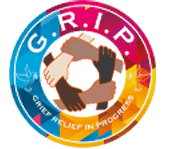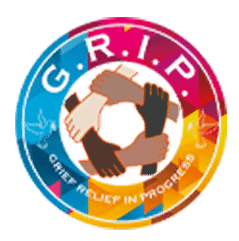What is the series process like?
Upon the completion of the intake process, the potential party will complete a verbal assessment. It is during the verbal assessment that a determination is made whether the prospective person is a “good fit” for the series. Input from the potential participant is crucial. Upon the completion of the assessment, some individuals may be advised to seek professional mental help.
Are there things to help me predetermine whether I might be a good fit?
At the end of the verbal assessment, the assessor will make a recommendation to you whether or not you present yourself as a good fit. Some of the factors considered to make the determination are your goals, your felt needs, objectives, availability, etc. If you fit into one of the following categories, then this series is probably not for you:
- You are a minor.
- You are in a crisis situation.
- You have been ordered by a court to receive therapy.
- You are unable to attend regularly scheduled sessions.
- You are unwilling to make changes in your life.
- You do not have access to the needed technology.
- You are unable to maintain confidentiality.
- You feel suicidal due to your loss.
- You feel stuck and you have made no progress over the years (you made need grief counseling).
- You are trying to cope with addictions you have added since your loss.
- For quite some time you have no interest relative to the lives of other significant people or things (relatives, friends, job, etc.)
Does this program have an advantage useful for me?
An advantage this online coaching program presents is that it helps a person realize his/her strengths and weaknesses. That is, it helps a person not to overestimate or underestimate his/her ability to make appropriate adjustments during the loss. Another advantage is that each person receives support that leads to clearly defined objectives and goals. In addition, using the coaching approach allows the participant to direct the pace and content that is appropriate for him/her.
What about confidentiality?
Confidentiality is very important. Automatic dismissal is implemented if it is demonstrated that a person broke the confidentiality rule. We advise individuals not to share those things that may cause harm. Often, individuals are able to determine what should be shared and what should not.
How often are the sessions and how long is each session?
Sessions take place once per week for six consecutive weeks. Normally, there are no more than 12 people during the sessions. It is important for each participant to commit to all 6 weeks. We are sensitive to the idea that sometimes absence is unavoidable. However, missing a session will impact your experience and that of others. Each session normally lasts about two hours.
Will specific types of loss be discussed?
Yes, specific types of losses will be discussed. For example, someone may be grieving over the loss of a spouse; another the loss of a child; another the loss of a parent; someone may be grieving the loss of a sibling. Despite the type of loss you have, others should be able to relate to the pain and agony associated with your loss.
What is expected to be accomplished from each session?
There are four things that are normally accomplished by the end of each session.
(1) Group participation provides an opportunity for social and psychological support from other bereaved individuals; others can relate to the struggles of loss.
(2) Some report that they benefit from opportunities to share their stories and listening to others share their experiences is helpful as well.
(3) Identify feelings and emotions so that appropriate coping skills can be employed during the healing process.
(4) Participants often help each other develop creative ways to address the pain of their loss. They may share personal experiences or something they read that helped them on their journeys.


